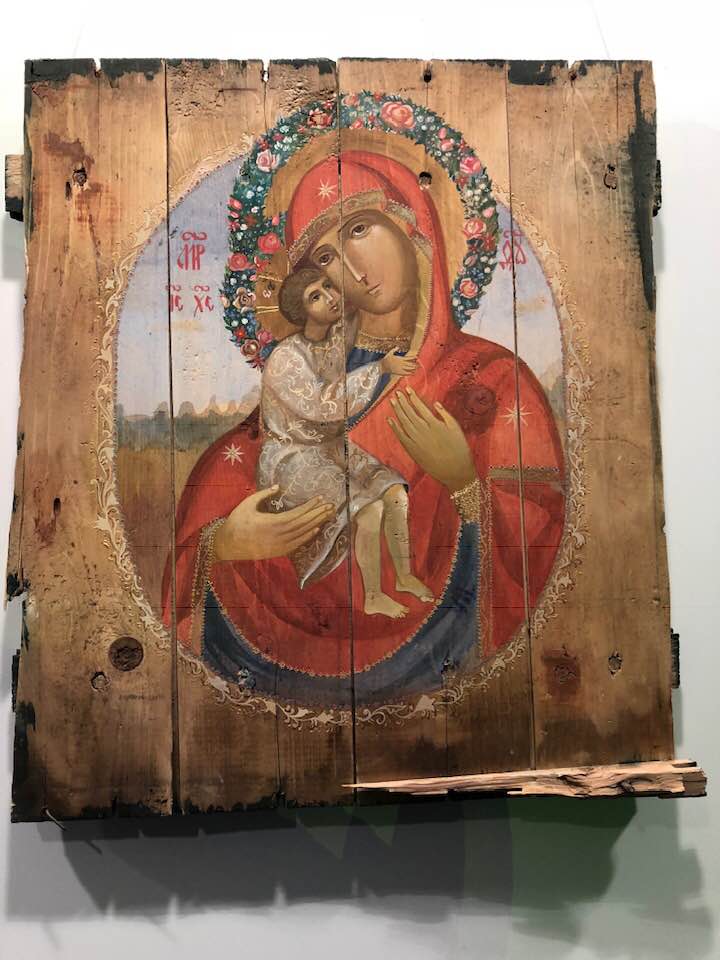A CAPPELLA
By way of continuing the interview of a year ago, which ended with these words from Father Ihor Rantsya, Vicar of the Ukrainian Cathedral of Saint Vladimir the Great in Paris:
“Art is involved in all this. Our prayer, the Byzantine prayer, is always a sort of art. There are always Icons, and that is an art – painting. There is also the art of singing – religious hymns, and often these two kinds of art accompany our soldiers. They carry the Icon before them, and they have those melodies in their heads. It is a spiritual method of resistance. We need to mention and speak of the consciousness of our soldiers, of our people: they are on their own territory, to protect it. It seems to me that art always accompanies the spirituality of Ukrainians.”

« All support for a new form of art is good. »
“Here is something that was painted by a soldier. An icon painted – written – on the lid of a box of ammunition, on the frontline.”
One year of war: during the press conference given on this occasion at the Cathedral, on Thursday 23rd February, Lesya Mykytyn, Artistic Director of the Ukrainian Choir of St. Vladimir the Great, shows me this photo after recalling the importance for the Ukrainian people of chanting in general, and Byzantine liturgical chant, in particular. The St. Vladimir Ukrainian Choir gives charity concerts throughout France. “These concerts end with the singing of what was once considered a second national anthem of Ukraine!”
(Note: the Choir’s repertoire is varied: Ukrainian folk songs, classical, contemporary and religious works; anonymous works from the Kiev Lavra, « reflecting the primary expression of the liturgy of ancient Ukraine »).
A few further words to emphasise the importance of the involvement of art in this war. Father Rantsya speaks again,
“This war has created new forms of culture and art. For example, we are seeing soldiers writing icons on war material. All support for a new form of art is good, an art form produced by the soldiers themselves.
My friends, who used to participate in pilgrimages before the war, in times of peace, would chant the hymns appropriate to a pilgrimage. Now they chant the same hymns during a military march.”
Translation from French by Hilary Burgess